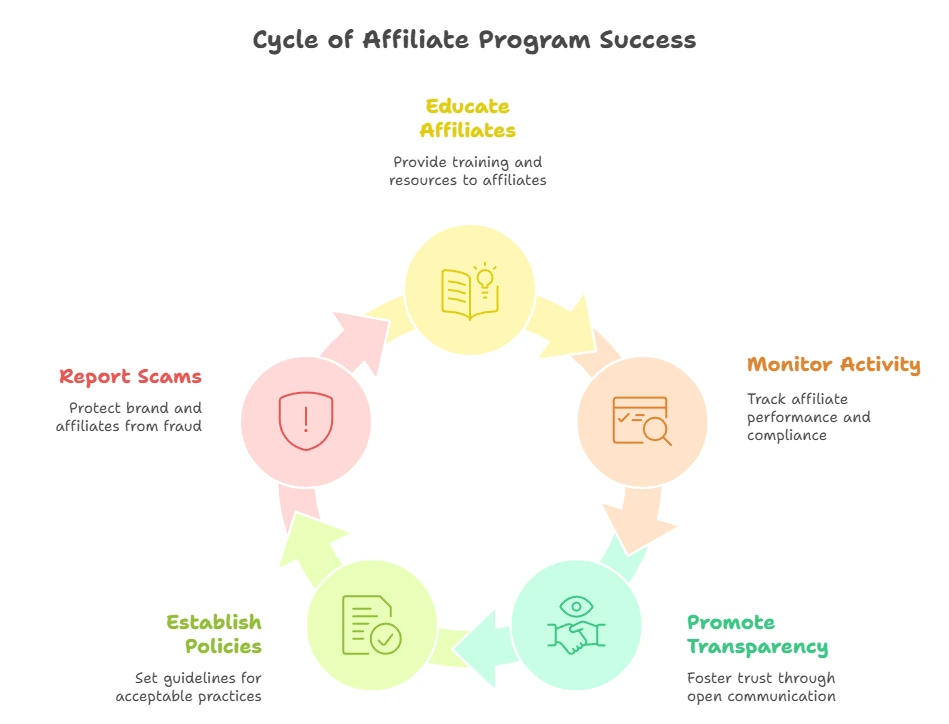
Emphasis on Recruitment
If a program focuses more on recruiting new affiliates rather than selling a product or service, it may be a pyramid scheme disguised as an affiliate program.
Moreover, reviewing affiliate marketing networks can be insightful. Well-known platforms typically have strict guidelines that filter out scams. Some reliable affiliate networks include:
| Affiliate Network | Focus Area | Website |
|---|---|---|
| ShareASale | Wide Range of Products | sharea-sale.com |
| Amazon Associates | Retail and E-commerce | affiliate-program.amazon.com |
| Rakuten Marketing | Global Brands | rakutenadvertising.com |
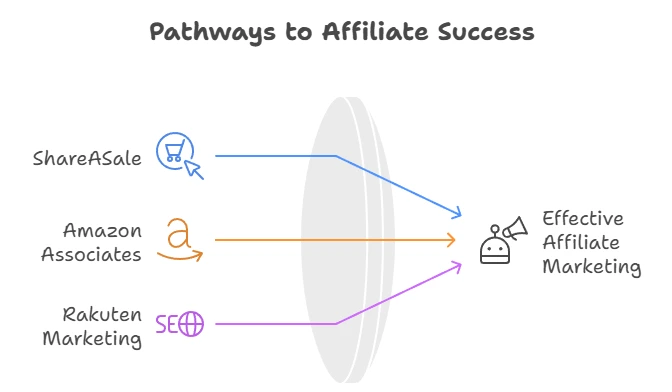
Spotting red flags early can save you time and money. Always do your due diligence before jumping into any affiliate program. Look for reviews from real users and consult reputable sites to ensure the opportunity is legitimate. Check forums and communities dedicated to affiliate marketing, such as Reddit’s Affiliate Marketing Community.
Remember, your intuition is a valuable tool. If something feels off or too pressuring, don’t hesitate to walk away. Trust your gut. Protecting your interests should be your foremost priority. By staying informed and aware, you can enjoy the opportunities affiliate marketing has to offer without falling prey to scams. Consider joining educational platforms that teach you how to engage with affiliate marketing ethically and effectively. Examples of such are Udemy and Coursera. These resources can provide you with the knowledge needed to discern what a legitimate program looks like.
The Rise of Fake Affiliate Programs: How to Identify Them
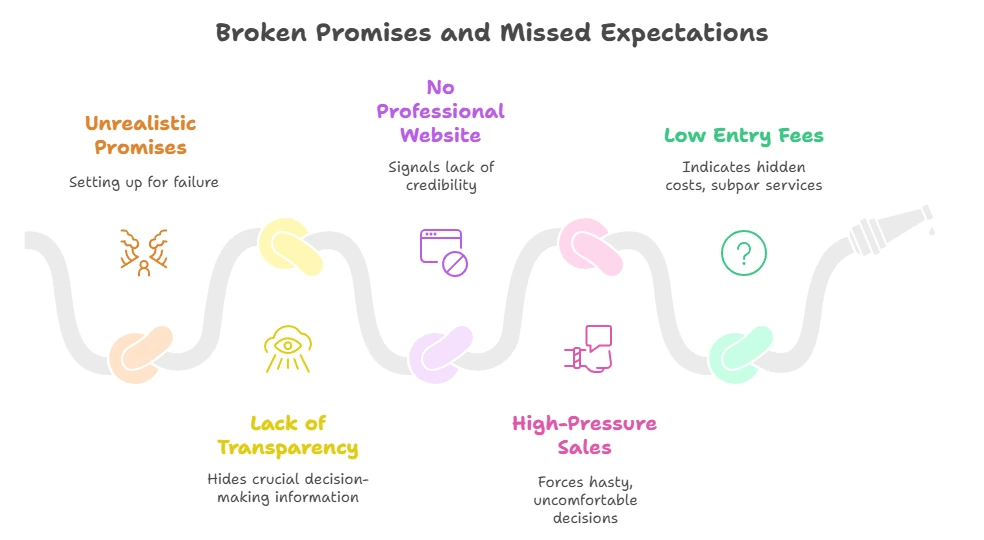
In today’s fast-paced digital world, affiliate marketing has emerged as a primary source of income for many. Unfortunately, this rise has also led to an increase in fake affiliate programs that aim to scam unsuspecting individuals. Scammers have become increasingly sophisticated, making it essential to stay informed and vigilant. Understanding how to identify these Affiliate Marketing Scams can save you both time and money.
Unrealistic Promises
One major characteristic of fake affiliate programs is their unrealistic promises. If a program claims you can earn massive amounts of money overnight with little to no effort, it’s probably too good to be true. Real affiliate marketing involves hard work, patience, and a sound strategy. Genuine programs will outline a clear path to success that includes building relationships and trust with an audience. If you’re drawn to a program that seems to have no requirements for effort or responsibility, proceed with caution.
Lack of Transparency
Another red flag is the lack of transparency. Reputable affiliate programs should provide clear information about their commission structures, payment schedules, and the steps to earn those commissions. If a program seems vague or offers little insight into these details, it’s wise to walk away. A good practice is to research how the program operates and how they report payments. You can often find this information in user reviews.
No Professional Website
Before joining any program, take a moment to look into the company behind it. A legitimate business will have a professional website, a clear mission statement, and contact information. If you can’t find any credible details about the business or its team, that’s a major warning sign. Websites like BBB can provide insights into a company’s reputation through user reviews and complaints.
Utilize High-pressure Sales Tactics
Fake affiliate programs often utilize high-pressure sales tactics. If you feel rushed to sign up or pressured to pay a fee to gain access, turn back immediately. Genuine programs acknowledge that your decision to join should be made with careful consideration. No legitimate program should demand immediate commitment from you.
Low Entry Fees
If you come across unreasonably low entry fees or hidden costs, be suspicious. While some affiliate programs may charge a nominal fee to cover administrative costs, a reputable one will explain these fees transparently. Be wary if you find yourself having to pay for products or services that you will need to sell. The norm in affiliate marketing is that you promote products you believe in and earn a commission only when you make a sale.
Poor Community Feedback
Community feedback plays an essential role in identifying fake affiliate programs. Search for reviews or discussions on platforms like Reddit or Trustpilot. Real stories from users can help you distinguish between genuine and scam programs. If many people warn against a particular program, listen and take their advice seriously. High levels of disgruntlement among users often signal a deeper issue. Below is a list of common attributes of fake affiliate programs:
In addition to these signs, educate yourself about the affiliate marketing landscape. Knowledge is power. Engaging in forums and reading up-to-date articles on affiliate marketing can provide insights into legitimate opportunities and help hone your skills. Another valuable resource is JVNotifyPro, a website dedicated to listing verified and reliable affiliate programs.
It’s important to ensure you’re working with programs that have a proven track record of success and satisfied partners. In an evolving landscape of affiliate marketing, being informed empowers you to make wise decisions. Stay alert for signs of fake affiliate programs. Shield yourself from scams by doing thorough research, seeking community input, and promoting products that align with your values. By keeping these points in mind and maintaining a proactive approach, you can navigate the affiliate marketing world with confidence, separating the genuine opportunities from the scams.
Impact of Affiliate Marketing Scams on Legitimate Businesses
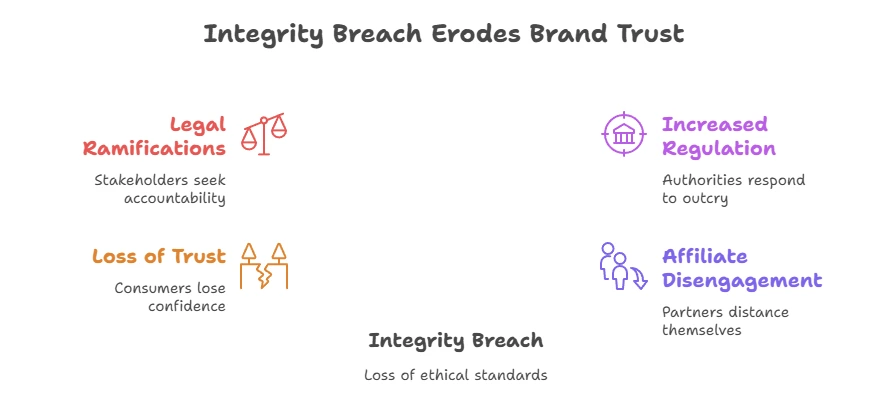
The rise of affiliate marketing as a popular revenue model has opened new opportunities for businesses. However, it has also led to the emergence of Affiliate Marketing Scams, causing significant damage to legitimate businesses. These scams not only defraud unsuspecting individuals but also tarnish the reputation of legitimate affiliate programs. Affiliate Marketing Scams often target both consumers and legitimate affiliates.
When potential customers fall victim to these scams, they are less likely to trust any affiliate marketing efforts. They may resist engaging with real brands because they fear falling for fraudulent schemes again. This can severely impact sales and brand loyalty. For legitimate businesses, the ramifications are extensive:
Loss of Trust
Customers and affiliates may lose trust in affiliate programs as a whole. They think that if one affiliate program is dishonest, all are likely to be fraudulent.
Negative Brand Image
When scams are associated with a brand, it can lead to a negative image. Businesses may find it hard to rebuild their reputation once it’s harmed.
Legal Ramifications
In some cases, businesses may face legal action if they are wrongly associated with scams, even if they are not at fault.
Increased Regulation
The prevalence of scams can lead to stricter regulations that legitimate businesses must follow, increasing their compliance burdens.
Affiliate Disengagement
Genuine affiliates may withdraw from partnerships with brands that have been associated with scams, fearing their own reputations are at stake.
To understand how widespread this issue is, consider the following statistics. A survey by ScamWatch found that over 60% of individuals have encountered some form of scam related to online marketing. Additionally, according to the Federal Trade Commission (FTC), complaints regarding online scams have risen consistently year-over-year, indicating a troubling trend that impacts the industry broadly.
Given the landscape, it’s crucial for legitimate businesses to take proactive measures to protect themselves from being associated with Affiliate Marketing Scams.
Here are some steps that can be taken:
Educate Your Affiliates
Provide training and resources to help affiliates identify and avoid scams. This increases the chances that your affiliates will represent your brand appropriately.
Monitor Affiliate Activity
Regularly review the activities of your affiliates. This enables you to identify suspicious behaviors or scams early on.
Promote Transparency
Use clear communication about your products and services, ensuring that your affiliates do the same. This creates a culture of trust and accountability.
Establish Clear Policies
Make sure your affiliate agreements include clauses regarding the types of marketing tactics that are permissible. This deters unethical practices from the outset.
Report Scams
Actively report scams to relevant authorities to help mitigate their impact on the industry. Transparency is essential in affiliate marketing. Generating a network of trustworthy affiliates helps to combat fraud. Legitimate businesses can set themselves apart from scammers by cultivating genuine relationships with affiliates who understand the importance of ethical marketing practices.
In the digital environment, scams evolve quickly, making vigilance more important than ever. Businesses must continuously educate themselves about emerging threats in the affiliate marketing landscape. This involves staying informed by visiting sites like Affiliate Programs or Digital Marketing Association to learn about safe practices and industry changes.
| Impact of Affiliate Marketing Scams | Details |
|---|---|
| Loss of Trust | Customers hesitate to trust affiliate programs |
| Negative Brand Image | Difficulty in rebuilding reputation |
| Legal Ramifications | Potential lawsuits due to associations |
| Increased Regulation | Stricter rules and compliance measures |
| Affiliate Disengagement | Genuine affiliates avoiding risky affiliations |

The threat of Affiliate Marketing Scams is real and serious. Legitimate businesses must take decisive action to protect themselves and their affiliates. By focusing on education, transparency, and vigilance, they can fight against the tarnishing effects of scams and foster a healthier affiliate marketing ecosystem that benefits everyone involved.
Strategies to Protect Yourself from Affiliate Marketing Fraud
In the dynamic world of affiliate marketing, opportunities abound, but so do risks. Unfortunately, many fall victim to Affiliate Marketing Scams. To safeguard yourself, it’s essential to implement reliable strategies. Here are practical steps you can take to protect yourself.
Research Thoroughly
Before joining any affiliate program, take the time to research the company. Ensure they are reputable and have a track record of trustworthiness. Check for reviews on platforms like Trustpilot. Look for testimonials from other affiliate marketers. Investigate their online presence and engagement.
Understand the Commission Structure
A clear understanding of how commissions work is vital. If a program offers unexpectedly high commissions, it may be a red flag. Be cautious if the payout seems too good to be true. Ask yourself: What are the commission rates? How often do they pay out? Are there any hidden fees?
Review Program Policies
Every legitimate affiliate program should have transparent policies. Before signing up, take the time to read these guidelines: Return policy, Cookie duration, Payment terms. If the policies are hard to find or vague, consider it a warning sign.
Be Wary of “Too Good to Be True” Offers
Scammers often lure victims with unrealistic promises. If a program guarantees high earnings with little effort, it’s likely a scam. Remember, legitimate affiliate marketing requires hard work and dedication. Always question suspicious offers and look for credibility.
Utilize Affiliate Networks
Joining well-known affiliate networks can provide an extra layer of security. These networks vet their programs, making them safer for you. Some reputable networks include: ShareASale, ClickBank, Awin.
Protect Your Personal Information
Never share sensitive information without ensuring the company is legitimate. Scammers may require unnecessary details. Protect your identity by: Using an email address specifically for affiliate activities. Reviewing security measures the company has in place. Being hesitant to provide banking information upfront.
Monitor Your Transactions
Keep a close eye on your affiliate earnings and transaction history. If you notice inconsistencies or missing payments, investigate promptly. Contact the affiliate manager for clarification and ensure you are informed about any changes to the program.
Engage with the Community
Networking with other affiliate marketers can save you from potential scams. Join forums or Facebook groups where you can share experiences and learn from others. Engaging with a community helps you stay informed about new scams in the industry.
Trust Your Instincts
If something feels off, it probably is. Trust your gut feelings and proceed with caution. Do not be afraid to walk away from an offer that raises your suspicions. Your safety and peace of mind should always come first.
By implementing these strategies, you can confidently navigate the affiliate marketing landscape while minimizing your exposure to Affiliate Marketing Scams. With the right precautions, affiliate marketing can be a rewarding venture. Stay informed, cautious, and always prioritize your security.
| Action | Purpose |
|---|---|
| Research the company | To ensure credibility and reputation |
| Understand commission structures | To identify fair compensation |
| Review program policies | To ensure transparency and clarity |
| Be wary of unrealistic promises | To identify potential scams |
Stay vigilant, and be proactive in safeguarding your affiliate marketing journey. Together, we can build a safer online marketplace.
Success Stories: Turning Negative Experiences with Scams into Positive Learning Lessons
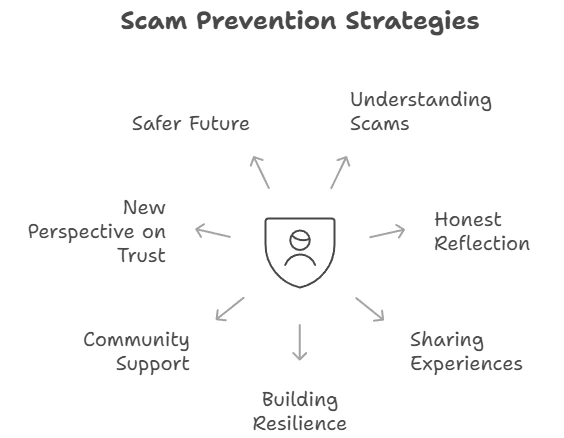
Experiencing a scam can be disheartening, but many have found ways to turn these negative experiences into powerful learning lessons. Instead of letting a scam define them, individuals around the world have learned lessons that not only help them grow but also prevent them from falling victim again. Here are some compelling success stories that showcase resilience and valuable insights gained from scams.
Understanding the Types of Scams
There are various types of Affiliate Marketing Scams that people encounter, but a few common examples include: Phishing Scams: Fraudulent attempts to obtain sensitive information, such as passwords and credit card details, often by impersonating a legitimate source. Investment Scams: Promises of high returns on investments that seem too good to be true, often leading to significant financial losses. Online Shopping Scams: Fake e-commerce websites that trick users into paying for products that either do not exist or are of inferior quality. Job Scams: Fraudulent job offers that require upfront fees or personal information from unsuspecting applicants.
Open and Honest Reflection
One key element in turning negative experiences into positive outcomes is reflection. For instance, after losing money to a phishing scam, Sarah realized the importance of monitoring bank statements and enabling two-factor authentication on her online accounts. This proactive approach allowed her to feel secure and empowered rather than victimized.
Sharing Experiences to Help Others
Another successful approach is sharing stories to warn others about potential scams. After being scammed through a fake investment opportunity, John started a blog where he detailed his experience. By sharing red flags that he noticed too late, he created awareness among his readers and even connected with others who had faced similar issues. His blog now serves as a resource for thousands, educating them about how to spot potential scams.
Building Resilience and Knowledge
Turning a negative experience into a strong learning lesson often involves building resilience. Many individuals educate themselves on different types of scams and how to avoid them. For example, Linda decided to take online courses about cybersecurity after falling victim to an online shopping scam. Now, she not only protects herself but also advises friends and family on keeping their personal information safe.
Community Support and Resources
Finding community support can make a significant difference in recovering from a scam. Online forums and local support groups provide platforms for sharing experiences and strategies for prevention. Websites like Staysafeonline offer resources on how to report scams and protect oneself. By connecting with others, victims can find comfort and practical advice to regain control over their lives.
A New Perspective on Trust
Another important lesson learned is about trust. After falling victim to a scam, some individuals redefine their approach to trust in personal and financial decisions. For instance, after being duped by a fake charity, Mark became more discerning about the organizations he supports. He emphasizes research, checking for legitimacy, and seeking references before engaging further. This new perspective allows him to have a more cautious approach while still contributing to causes he believes in.
Key Takeaways for a Safer Future
Here are some actionable takeaways that anyone can implement to avoid falling victim to scams: Always verify sources before providing personal information. Use secure payment options that offer buyer protection. Educate yourself regularly about the latest scams and cybersecurity tips. Report suspicious activities to authorities to help others. Involve trusted family or friends when making financial decisions.
Though falling victim to scams can be painful, it’s essential to remember that recovery and growth are possible. By finding lessons in negative experiences, sharing knowledge, and building a supportive community, many have turned their challenges into triumphs. They now possess the strength and skills to navigate the world more safely and confidently. For additional information, resources, and support, you can also visit Staysafeonline, which offers tips on securing personal information and preventing scams.
Conclusion
Navigating the world of affiliate marketing can be tricky, especially with the rising prevalence of scams that target unsuspecting marketers. Recognizing key red flags—such as overly high commissions, lack of transparency, and pressure tactics—plays a vital role in protecting yourself. Fake affiliate programs often prey on novice marketers, making it essential to do thorough research and seek out credible sources.
The impact of Affiliate Marketing Scams extends beyond individual losses; these fraudulent schemes tarnish the reputation of legitimate businesses and create distrust in the market. As a responsible marketer, it’s crucial to engage with reliable companies and verify their credentials before getting involved.
To guard against fraud, consider implementing strategies like diversifying your affiliations and consistently monitoring your earnings and traffic sources. Education also stands as your best defense; stay informed about the latest scams and industry trends. Every challenge can unlock new insights. Many successful marketers have turned their initial negative experiences with scams into lessons, helping them avoid similar pitfalls in the future and guiding others towards safer practices. By sharing your own stories and learning from others, you can contribute to a community that actively works against Affiliate Marketing Scams.
Empower yourself with knowledge, stay vigilant, and build connections with trustworthy platforms. This proactive approach not only protects you but also reinforces the integrity of the affiliate marketing landscape for the community as a whole.

